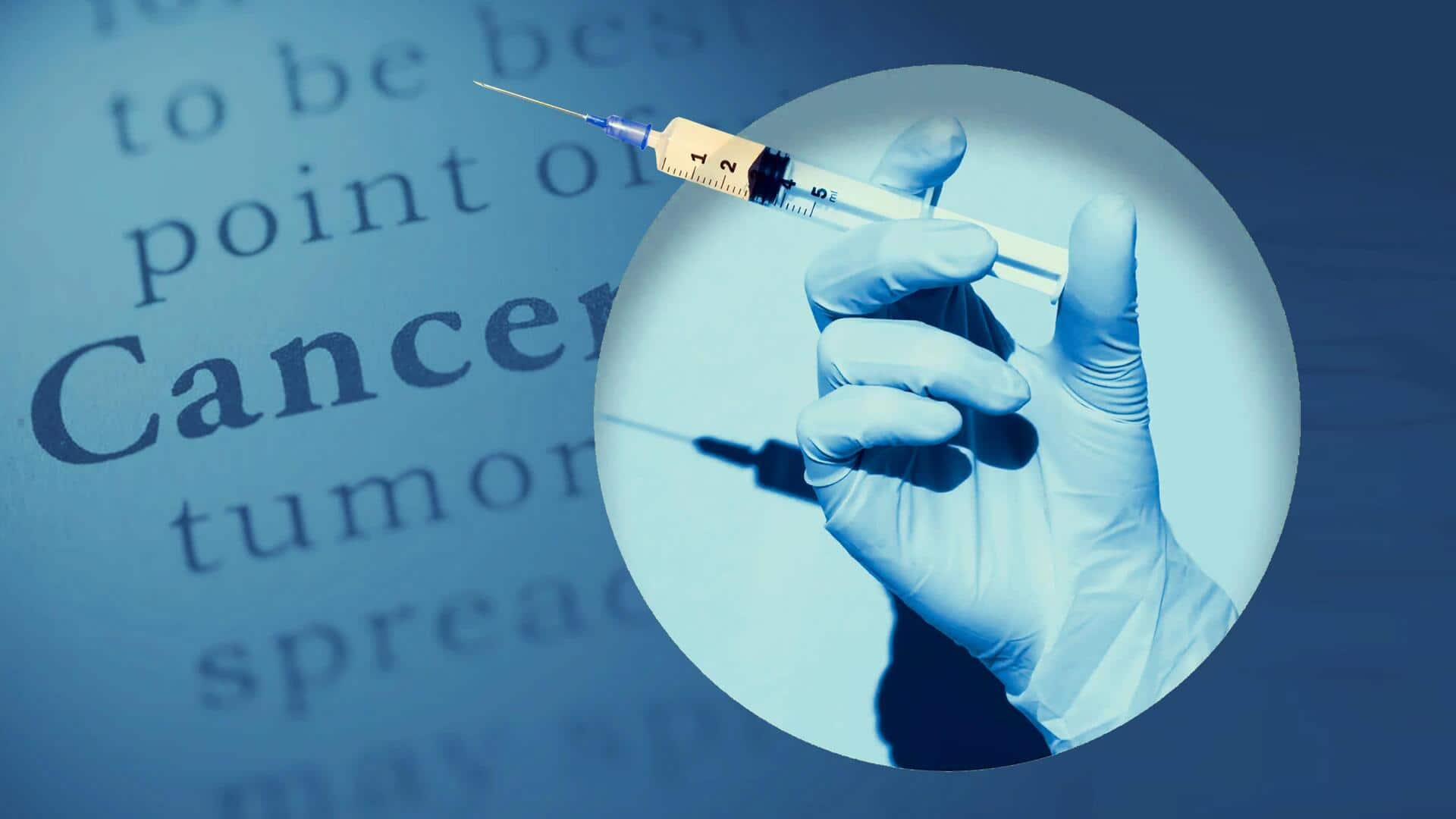
What are cancer vaccines, have scientists finally found a cure?
What's the story
Thousands of National Health Service (NHS) cancer patients in England are expected to get access to trials of a new type of treatment using vaccines to fight their disease. Thirty hospitals have already signed up for the Cancer Vaccine Launch Pad. The NHS scheme is the first of its sort globally. It aims to enlist thousands of cancer patients through a matchmaking service for clinical trials of jabs that could potentially help them.
Customization
Personalized vaccines: The future of cancer treatment
These groundbreaking vaccines are tailored to each patient's specific type of cancer. The process involves surgically removing a sample of the patient's tumor and analyzing it through DNA sequencing, often aided by artificial intelligence, to create a personalized vaccine. This vaccine then instructs the patient's cells to produce antigens that can distinguish cancer cells from normal cells, enabling the immune system to target the cancer cells effectively.
Launch pad
First patient in the UK
The first patient in the United Kingdom to receive a personalized vaccine through this program was Elliot Pfebve, a 55-year-old lecturer diagnosed with colorectal cancer. His vaccine, created using mRNA technology, was designed to target specific mutations in his cancer. Dr. Victoria Kunene, the trial's chief investigator in Birmingham, said it was too early to determine whether the patient had been entirely cured, but she was "extremely hopeful."
Landmark moment
Landmark moment in cancer treatment: NHS Chief Executive
Similarly, NHS Chief Executive Amanda Pritchard described the treatment of Pfebve as a "landmark moment for patients and the health service as we seek to develop better and more effective ways to stop this disease." Pfebve also expressed his hope that these trials will pave the way for more effective treatments for future patients. "If it is successful, it may help thousands, if not millions...so they can have hope, and may not experience all I have gone through," he said.
Future prospects
The potential and challenges of cancer vaccines
For the trial, more than 200 patients from the UK, Germany, Belgium, Spain, and Sweden will be enrolled, and they will each receive up to 15 doses of the personalized vaccine. The study is not expected to be finished until 2027. Doctors are also testing the world's first personalized mRNA cancer vaccine for melanoma. Experts hailed its "gamechanging" ability to permanently treat skin cancer. A phase 2 experiment discovered that the immunizations significantly reduced the likelihood of the cancer recurring.